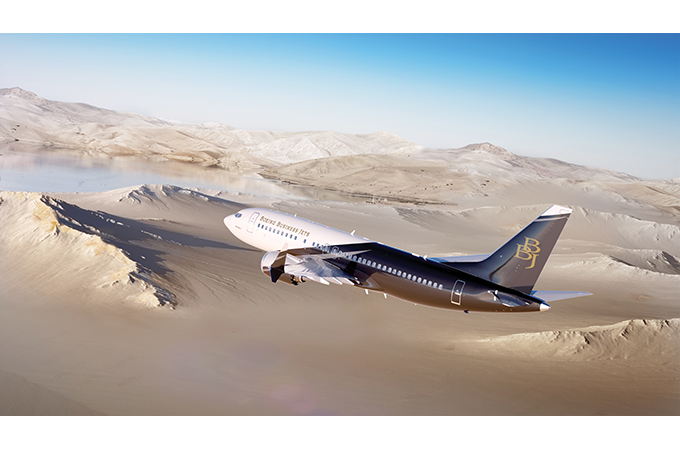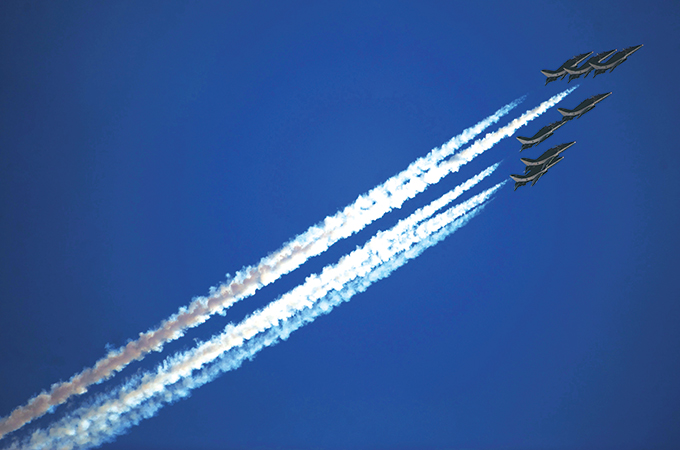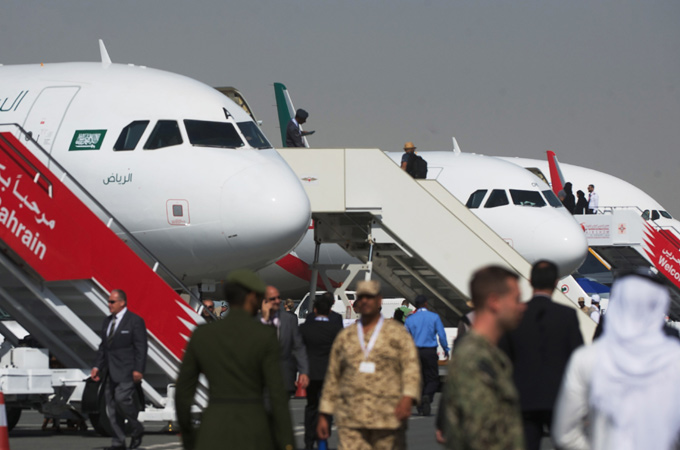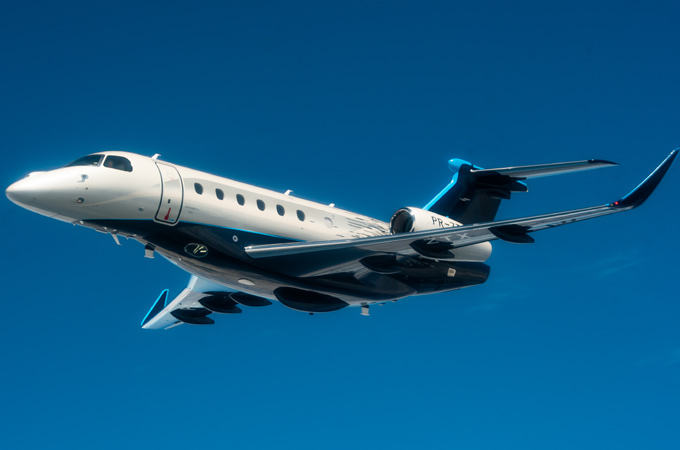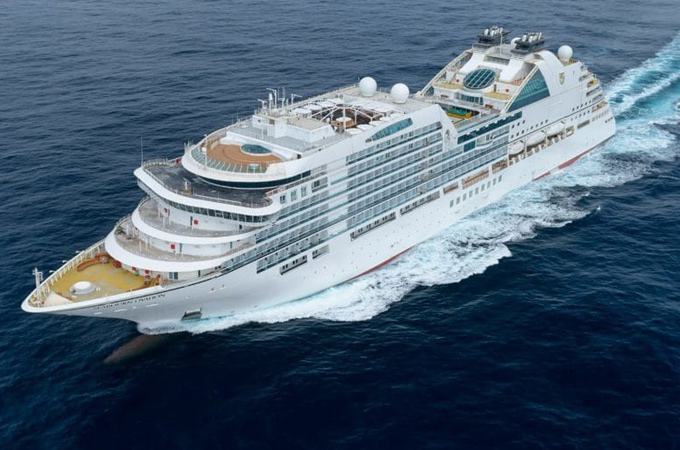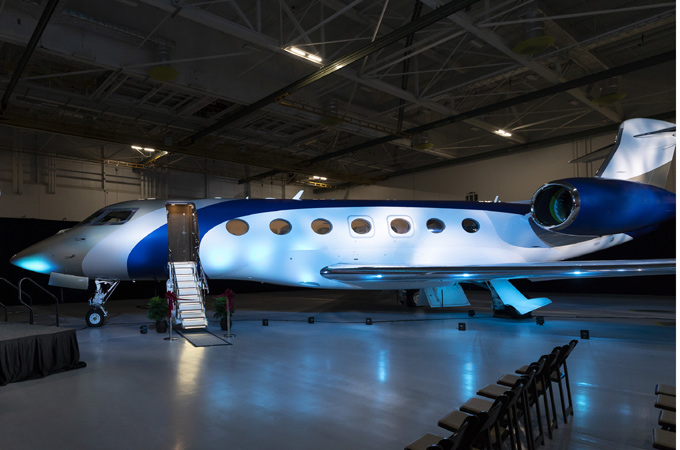Winter 2016
Ten years on and with seven jets in its portfolio, Embraer Executive Jets has emerged as a global force in the world of business aviation
In terms of business jets, Embraer is relatively new to the business. The 2015 Dubai Airshow was held in the Brazilian company’s 10th year in the business, but its story goes much further back with roots in commercial aviation and defence.
Embraer was established in 1969 in Brazil. A major aircraft producer, the company has a wide range of military and civil aircraft in its portfolio. Its wide experience in producing competitive, reliable and efficient commercial airline and hard-worked military aircraft that have to succeed in a fiercely competitive world market has given it a corporate DNA that is at the core of every one of the seven business jets in its range.
Embraer Executive Jets was founded in 2005, a spin-off that drew on the wealth of experience of the parent company.
“We have seven business jets in a company portfolio designed and launched in a little over 10 years since we started in this segment,” says Claudio Camelier, Vice President of Sales, Middle East and Asia-Pacific, for Embraer Executive Jets. “Our first product was the Legacy 600 in 2002 and in 2005 the executive jets division of Embraer was created. Ten years, seven products.”
Camelier is enthusiastic and clearly proud of Embraer’s history.
“The expansion has come as a response to market demand – backed up by our experience in the military and commercial areas. In the early 2000s, we saw we had all the capabilities to succeed in this market and from that point, we have expanded to have the widest portfolio in the industry – from entry-level Phenom 100E through to the ultra-large Lineage 1000E.”
Brazil is still the home of Embraer where the main production lines for all its commercial airline and military products are based. It is there also that the Legacy 500, 650 and Lineage models are assembled.
However, the company has expanded into a truly global concern, with manufacturing centres in the US, Europe and China supplementing the home production centres. China hosts a final assembly line for the Legacy 650 for the Chinese market.
KEY STRENGTHS
Camelier points out the company’s particular strengths. “With our experience in designing aircraft for commercial airlines, we know how important one per cent in fuel consumption is, or the downtime in maintenance and so on is,” he says. “So all this knowledge accumulated from producing commercially efficient airplanes is applied and effective. Our competitors do not have this kind of background.”
Some characteristics stand out on Embraer’s aircraft when compared with competitors, he continues. “We offer the biggest and the most comfortable cabins, by far our airplanes are the most efficient in terms of fuel economy and reliability and dollar for dollar, offer the best package in the business.”
Camelier says that Embraer offers the widest portfolio of products that covers just about every segment in the industry and offered highest cost/value ratio. “For example, look at similarly priced airplanes – and we offer bigger cabins, and longer range. The only segment that we do not compete in is the very long range of 6/7,000 nm (nautical miles).”
Typically, Middle East customers demand airplanes with mid-size or large cabins with a range to travel to Europe or places in Africa.
“With the Legacy 650 and the Lineage, you can fly from Dubai to London non-stop. So even if you have an airplane with a 6,000 nm range, you cannot fly direct to the US. So, if you have to stop, why not do it on a Lineage that allows more people, greater comfort – twin-size bed and shower for example – and capitalise on the combination of luxury, efficiency and cost?”
Achieving this extremely attractive package was no accident, he notes. “This was our business model when we started, to produce efficient airplanes. Having the opportunity to start with a clean sheet, we designed our airplanes to be the leaders in their segment.”
LEGACY 500
The Legacy 500, Camelier says, is the only airplane in its class that offers a flat floor with a stand-up cabin. “It is extremely quiet while flying, the pressurisation level is very good and the comfort level high, leaving the passenger well rested and refreshed.”
Though many people have the impression that a business jet is a luxury toy, Camelier explains that it is in fact a valuable working tool. “A business jet is a time machine, in that it allows the businessman to be more efficient in the use of his time – work while travelling, own schedule – and as the saying goes, time is money, so for senior corporate businessmen, they will be more productive.”
He says that Embraer’s corporate DNA is entirely commercial: an airplane needs to be reliable, efficient and easy to service, and an aeroplane like the Legacy 500 needs only one maintenance activity a year, or every 750 flying hours.
Whilst this derives from the airline experience, Camelier says that Embraer’s teams spend a lot of time with customers understanding their specific requirements in terms of upgrading a business jet.
The cabin design teams are greatly experienced and the cabin fitting out is carried out in-house. Whilst the interior had to be visually pleasing, it also had to be functional. Some of these functional features are concealed.
“For example, during a service, sometimes you have to access the window. On most business jets, to access a window you have to remove the entire side-wall, on the Legacy 500 only a small panel needs to come off. This is only one example of integrating the look and feel of the design with the functionality of making the airplane efficient.”
Within the options offered for Embraer’s business jets, there is a wide and flexible range of interior options with a choice of woods, metal fittings, colours, leathers, carpets together with galley options.
“On the Lineage 1000E, we do offer a green (ready to be fitted out) hull so that the customer can do whatever they wish,” Camelier notes.
RANGE AND SPEED
In the business jet market, further and faster are often selling points that the customer seeks. Camelier is sanguine about this, suggesting that the wide range of aircraft that Embraer offers provide very appropriate solutions to most business requirements.
At the entry level, the Phenom 100E had a range of 1,180 nm and cruises at 0.7 Mach. At the top end, the Lineage 1000E can cruise at 0.83 and has a range of 4,600 nm.
“Cruising speed of Mach 0.9 is typical of the 6/7,000 nm planes,” says Camelier, “and we are not in that market segment.”
Nonetheless, last November, Embraer Executive Jets announced that the Legacy 500 had set two new world speed records for its class, making six in 2015.
The newest records were set for on a trip from the west coast of the US to Hawaii, with five passengers on board. The flight from Burbank (California) to Kahului (Maui) covered 2,165 nm (4,010 km) in six hours, at an average ground speed of 422.25 mph (680 kmph), and the return flight to Phoenix (Arizona) achieved 525.97 mph (846 kmph), covering 2,470 nm (4,574 km) in five hours and 30 minutes.
Camelier says that Embraer is consolidating its position in the industry, and has invested a lot in customer support. Many independent surveys that take the overall big picture of the business jets market consistently put Embraer on top for all-round service and satisfaction.
“Customer satisfaction for us is extremely important and one of our core business values is that we exist to serve our customers,” he says.
GROWING DEMAND
Embraer Executive Jets in November released its 10-year market outlook which forecast a global demand of 9,100 new business jets, worth $259 billion. It represented a compound annual growth rate (CAGR) of three per cent per annum over the next 10 years.
The forecast reflects higher potential demand coming from the US as well as a reduction in the demand from emerging markets. The small and medium jet segments were expected to represent the majority of the market, with nearly two-thirds of the total deliveries, benefiting mostly from the opportunities out of the North American and European markets.
“The Middle East is however still a major market, and Brazil is a very important market to us, particularly for Phenoms and Legacys – it is a very well developed market for both general and business aviation,” he says.
Embraer Executive Jets won an order last December for a new Legacy 650 large jet from an undisclosed customer in the Middle East. The order adds to the 29 Legacy 650s and Legacy 600s that are currently operating in the Middle East. The aircraft will be managed by the UAE’s Titan Aviation Group.
Captain Sakeer Sheik, Managing Director of Titan Aviation Group, says the owner currently owns a Legacy 600 and decided to upgrade to a Legacy 650 as he has been very pleased with Embraer’s supportive partnership.
The jet was chosen because of its range, reliability, low cost of operation, comfort and its ability to land in airports such as London City. With this new Legacy 650, Titan Aviation will be managing three Embraer’s executive jets in the Middle East and in India on behalf of their respective owners.
The large Legacy 650 carries up to 14 passengers in three distinct cabin zones, and premium acoustic comfort. In addition to the best-in-class galley and an in-flight baggage compartment that surpasses in size even those of most ultra-long range business jets, the aircraft may be configured with up to two lavatories. The Legacy 650 features internet connectivity and the latest generation in full HD (high-definition) in-flight entertainment, with Honeywell’s Ovation Select entertainment and cabin management system.
The jet features advanced navigation capabilities and the Honeywell Primus Elite avionics suite. The Legacy 650 has a range of 3,900 nautical miles (7,223 km) with four passengers, with NBAA IFR (National Business Aviation Association Instrument Flight Rules) fuel reserves, which means that the aircraft can fly non-stop from Dubai to Singapore.
NEW TREND
Meanwhile, Camelier points out that there is a trend developing in the use of Embraer planes for pilot training. “We have been quite successful on this on the Phenom 100E,” he says, adding that Etihad Airways has ordered four with an option for three more with delivery beginning 2016.
Also, just before the Dubai Airshow, Emirates Flight Training Academy signed a firm order for five Phenom 100Es, plus options for five more.
A key feature in the decision to buy the Phenom 100E was that the jet features the most advanced technologies for the present and future needs of flight training academies.
These include the capacity for high utilisation, a state-of-the-art cockpit, docile flying characteristics, and low maintenance and operating costs. The Phenom 100E is already serving flight schools in the US, Finland and Australia.
“For much the same set of reasons,” says Camelier, “charter companies like the products because of our airline DNA, efficiency and reliability, large baggage compartments, low servicing, and cost-efficient operating costs.
For the future, Embraer is set to build on the very sound DNA of its 45 years of commercial and military experience and consolidate its position in the business jets market. The combination of the three ‘E’s – Experience, Efficiency and Economy – which are derived from its commercial airline products, have turned a very young company into a real and very successful contender in just a decade.






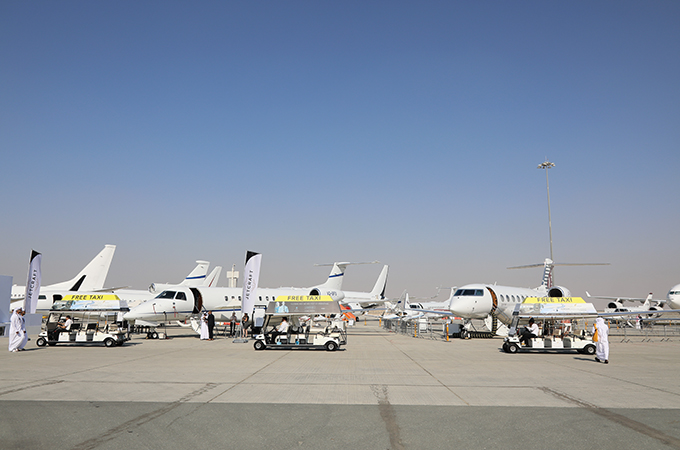
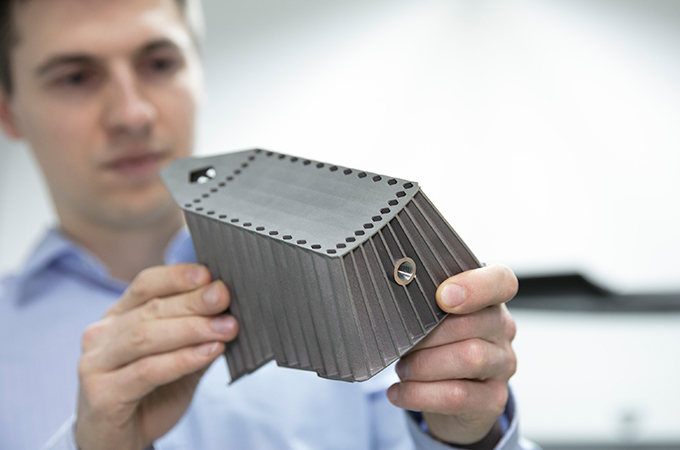
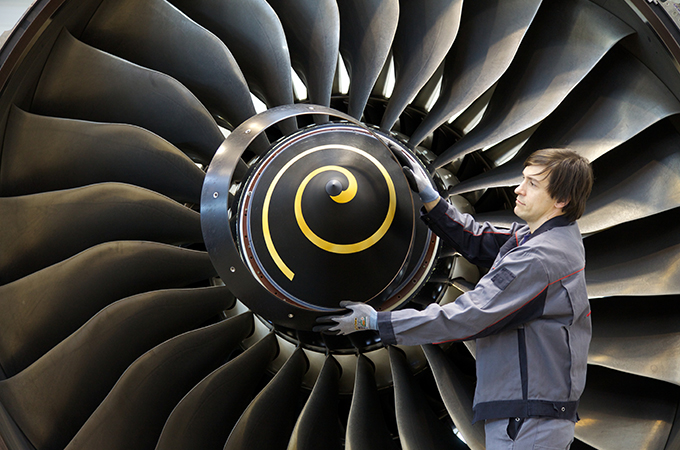
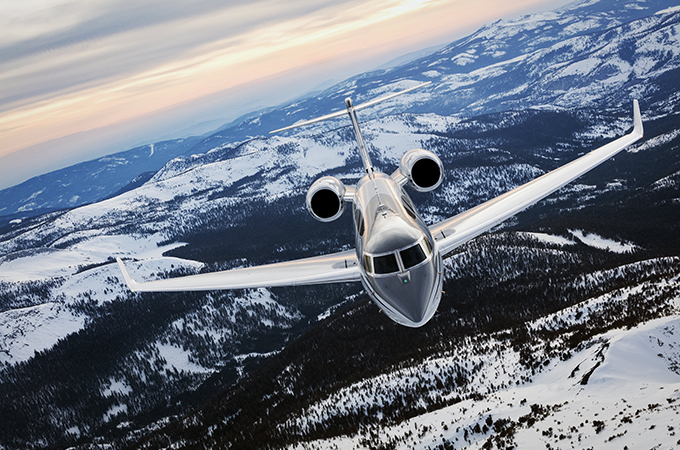
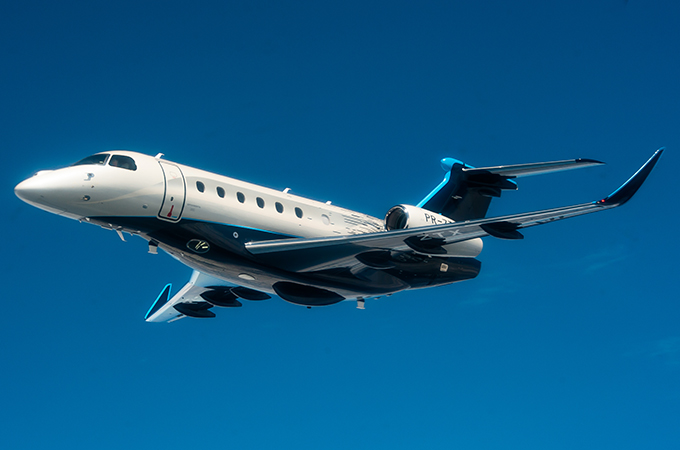
.jpg)
